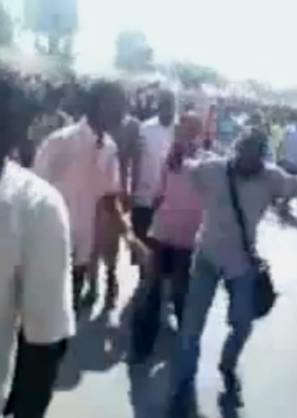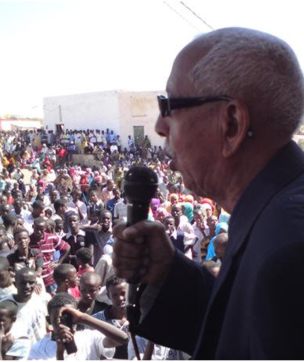|
Djibouti Politics Djibouti protests more massive than expected
The Djiboutian opposition formation UDDESC from Djibouti City reports that the number of protesters, gathering in the centre of the city after the Friday prayers, is still increasing. Currently, an impressive 5 percent of the city's population is protesting against President Guelleh.
UAD President Ismaël Guedi Hared modestly expected up to ten thousand persons to follow the massive calls for protests today - modest because the UAD had around 40 percent of voters behind it at the last elections where it participated. The UAD has boycotted Djibouti's two last elections over fraud allegations. Mr Hared therefore today was positively surprised about the great turnout of protesters. Also the UAD's slogans are dominant in today's protests. "No to a third term" is the main message of protesters, this evening moving towards the presidential palace. There have been very few international press reports about the Djibouti protests and its preparations as there are no foreign journalists in the country. National media, totally controlled by government, have not mentioned the protests. The only available sources, also for afrol News, are from the Djiboutian opposition and activists. The government of Djibouti has not commented on the protest movement and has tried to avoid international attention about it. According to UDDESC activists, this evening even international calls have been blocked in Djibouti in an attempt to restrict reporting from the events. By staff writers © afrol News - Create an e-mail alert for Djibouti news - Create an e-mail alert for Politics news
On the Afrol News front page now
|
front page
| news
| countries
| archive
| currencies
| news alerts login
| about afrol News
| contact
| advertise
| español
©
afrol News.
Reproducing or buying afrol News' articles.
You can contact us at mail@afrol.com









